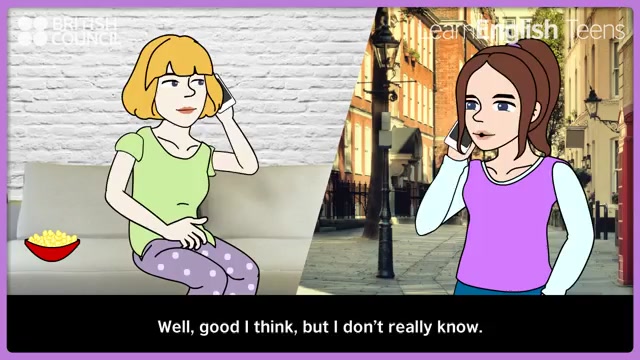
GOOD MORNING MY wonderful STUDENTS!
WELCOME TO THE ENGLISH CLASS!
Today we're going to learn about REPORTED SPEECH (GRAMMAR UNIT 6):
Reported what?  Reported speech!
Reported speech!
 Reported speech!
Reported speech!
Es nuestra manera de llamar al estilo indirecto en inglés. Te voy a ayudar a entender cómo se usa y se forma con un montón de ejemplos prácticos.
El ‘reported speech’ o ‘indirect speech’, es el estilo de comunicación por excelencia de los vecinos cotillas...
¿Cuándo utilizamos el reported speech? El reported speech, o estilo indirecto, sirve para contar lo que ha dicho alguien sin emplear las palabras exactas pronunciadas por esa persona.
ACTIVITY 2. Read and write down the following information in your notebooks:
Reported Speech (estilo indirecto):
We use reported speech when we want to tell someone what someone said. We usually use a reporting verb (e.g. say, tell, ask, etc.) and then change the tense of what was actually said in direct speech.
ACTIVITY 3. Read the following information :
Así pues, ¿cómo cambia el verbo en el reported speech?
En las siguientes tablas encontrarás algunos ejemplos:
Los tiempos verbales
Present simple ⇨ Past Simple
I’m from Spain. ⇨ He said he was from Spain.
I love speaking in English ⇨ She said she loved speaking in English.
I live in London. ⇨ He said he lived in London.
Present Continuous ⇨ Past Continuous
I’m resting on the sofa. ⇨ He said he was resting on the sofa.
You’re driving on the wrong side. ⇨ She said I was driving on the wrong side.
You’re working too hard. ⇨ She told me I was working too hard.
Past Simple ⇨ Past Perfect
I drove to Paris yesterday. ⇨ He said he had driven to Paris the previous day.
I woke up in hospital. ⇨ He said he had woken up in hospital.
I worked last Sunday. ⇨ He said he had worksed last Sunday
Present Perfect ⇨ Past Perfect
I’ve bought a new cushion. ⇨ She said she had bought a new cushion.
I’ve swum with sharks. ⇨ She said she had swum with sharks.
I’ve swallowed my chewing gum. ⇨ He said he had swalloed his chewing gum.
Past Perfect ⇨ Past Perfect
¡Buenas noticias! No hay que cambiar el tiempo verbal para pasarlo a ‘reported speech’.
The jury had had many doubts about the case. ⇨ She said the jury had had many doubts about the case.
Can ⇨ Could
I can’t understand Scottish people. ⇨ She said she couldn’t understand Scottish people.
I can play the piano. ⇨ He said he could play the piano.
I can cook for you. ⇨ He said he could cook for me.
Will ⇨ Would
I’ll take the rubbish out this evening. ⇨ He said he would take the rubbish out that evening.
I’ll love you forever. ⇨ She said she’d love me forever.
I’ll speak to the manager. ⇨ He said he would speak to the manager.

